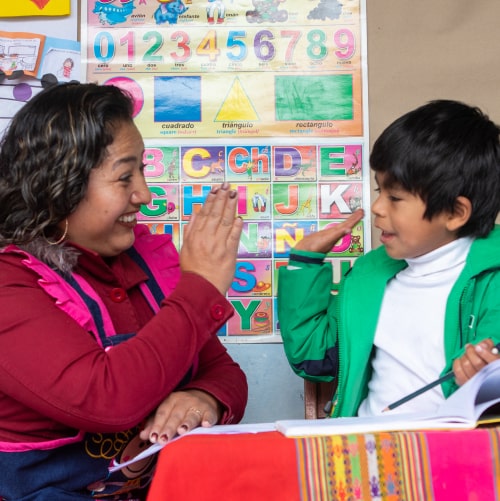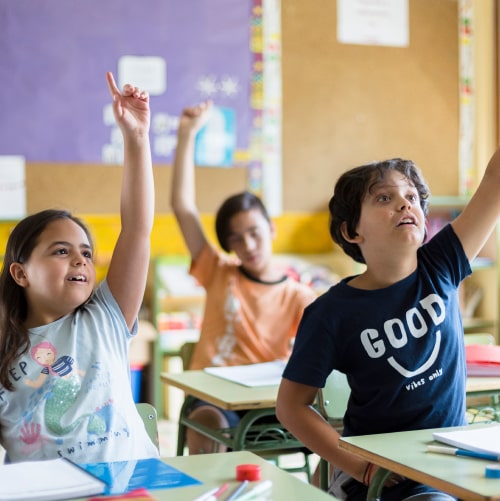Play (playing at school) and free spaces are excellent tools to help students connect with each other, given that they promote interaction and closeness among peers in a playful and fun way.
“Play at school” should consider the needs of children and adolescents

Students have diverse needs in terms of play, so it is fundamental to be able to attend to them adequately. Therefore, it is crucial that they have the opportunity to choose the type of game that they prefer, as well as the choice to experiment with different entertainment options.
Encounters, through play, are not a waste of time. On the contrary, they are valuable because:
- They allow students to calmly enter into the learning process.
- They help to resume routines and release energy.
- They allow to observe the spontaneous development of the students and to know them better.
- They encourage active participation and social interaction.
- They facilitate communication and understanding of ideas among students.
For Nanie Pease, a Bachelor of Anthropology and PhD in Psychology, it is fundamental to accompany, be present and supervise the interactions and play venues, because
in this way we ensure that those who are most vulnerable do not suffer violence or marginalization.
How to create moments for playing at school?

Moments for play require planning and close accompaniment at all times. These can be a project at the beginning of the school year to integrate classmates with games and dynamics such as creating a song, inventing a story, assembling structures or making a video. If you want to learn about more ideas, we invite you to review the dynamics and games proposed by UNICEF.
In conclusion, the moments organized for encounters and play allow students to calmly enter into the learning process, release energy and get to know each other better. It is fundamental to fulfil the diverse needs of students in terms of play, offering them a variety of options that allow them to experiment and choose freely.
In order to create moments for play, it is necessary to plan and provide close accompaniment, and it is important to supervise to prevent situations of bullying and violence. Maintaining these moments throughout the school year can be very valuable for the well-being and development of the students. Would you like to know more about the Educational Quality program of the Wiese Foundation? Through it, we seek to improve both the emotional and cognitive environment to optimize the teaching and learning processes. We invite you to visit the website of the Wiese Foundation to find detailed information about it here.









